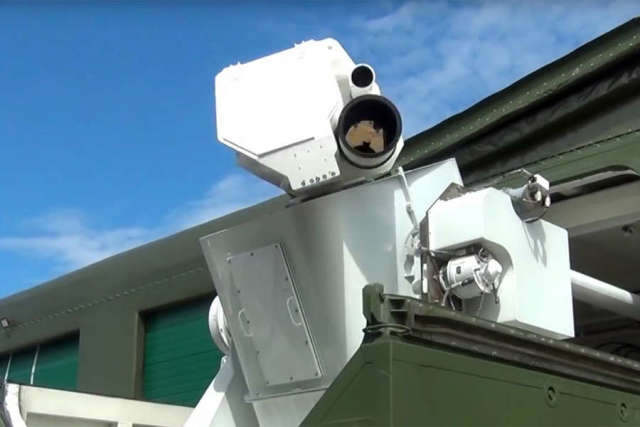What is an unconventional weapon and does it exist in Russia
The Russian army will soon be provided with unconventional types of weapons, including directed energy weapons, kinetic weapons, as well as control systems using artificial intelligence and robotic complexes. This was told to President Vladimir Putin by Deputy Prime Minister Yuri Borisov, who is responsible for the military-industrial complex. "Newspaper.Ru" figured out what it means.
During the meeting with the President, Yuri Borisov also noted that the new State Armament Program will be ready by mid-2023, and the government has already increased advance payments for the procurement of electronic components up to 100%. Granted the right to conclude contracts under the state defense order (GOZ) with a single supplier at approximate prices not exceeding the average GOZ, and without registration with the Federal Antimonopoly Service (FAS).
"Unconventional weapons, or weapons based on new physical principles, is a very conditional term. Now it unites the widest nomenclature - from complex laser and infrasound systems to simple non-lethal weapons like stun guns," he told the newspaper.Ru" military expert Sergey Belousov. - For example, electronic warfare appeared relatively recently and their purpose was unclear to many, and now there are special electronic warfare troops in the structure of the Armed Forces of the Russian Federation. And the range of military equipment is impressive, of the most famous - the complexes "Leer", "Infauna", "Krasukha" and others."
There are no troops using weapons based on new physical principles as such, but the Peresvet laser complex, the existence of which Vladimir Putin spoke about back in 2018, is already on combat duty. This complex is designed to perform air and missile defense tasks. The characteristics of the "Peresvet" are classified, it is only known that with its laser effect it "blinds" air objects, including drones. In 2020, the complex was tested in Syria.
A number of developments can be included in the list of unconventional weapons that Borisov spoke about. In particular, electromagnetic weapons. Tests of such weapons began in the USSR.
"Back in the 1950s, academician Andrei Sakharov proposed its creation. There were also developments of the Research Institute of Radio Instrumentation, which is now part of the Almaz-Antey concern, and the Physics and Technology Institute named after him. Ioffe, where powerful microwave radiation from the ground to aerial targets was studied. The real embodiment of electromagnetic weapons capable of hitting the electronics of ground targets, aircraft and guided projectiles was the domestic Satchel-E complex, which was first presented in 2001 at a weapons exhibition in Malaysia," Belousov said.
The expert noted that this complex is capable of hitting electronics at a distance of up to 12-14 kilometers. Thus, while the possibilities of using the "Satchel-E" are limited to a relatively short range. "Now work is underway to increase the distance of combat use," says Belousov.
Another promising Russian electromagnetic weapon is the Alabuga complex. Its tactical and technical characteristics are not disclosed. The complex is produced by JSC Concern Radioelectronic Technologies (KRET), which is part of Rostec Corporation.
In 2018, Vladimir Mikheev, Deputy General Director of KRET, told RIA Novosti that the Alabuga is not a specific weapon: a whole complex of scientific research was completed under this cipher in 2011-2012, during which the main directions for the development of electronic weapons of the future were determined. In particular, one of such directions is the installation of an electromagnetic emitter on a rocket as a means of delivery. The charge is triggered at an altitude of 200-300 meters and operates within a radius of 3.5-4 kilometers, where the enemy is deprived not only of means of communication, but also guidance and control.
- explained to the Newspaper.En" the principle of operation of electromagnetic weapons military expert on radio electronics, reserve Colonel Mikhail Lavrenchuk.
Victor Sokirko

